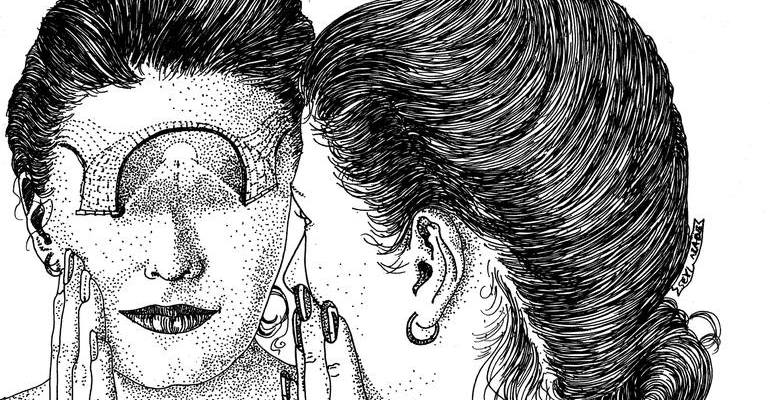Opinion: Who exactly is it? Vanity after the normal patterns of cultural personality
“Describe yourself in three words”—a simple, yet terrifying question staring at me from my laptop screen, successfully organizing my seventeen-year-old identity into three neat piles . As college applications approach, I find myself desperately seeking to answer this question: Who am I? Due to the difficulty of finding the right words, I looked on the internet…where I fell into a deep pit of “personal questions.”
“Are you one of the 16 people?” “What is your Cosmos Persona?” “What color aura is your musical taste?” “Which one is RU?” and so on. With strange names like these, you’d think I’d stray from these seemingly pointless experiments. However, I found myself busy one after the other—INFJ, spacetime, violet, macaron. As I became more and more amazed, a feeling of confusion also came over me. Even after all these answers, I was still at a loss as to how to answer the first question that asked.
I was familiar with the Myers-Briggs Personality Typology along with several other nearby tests that were successful as profit making tools for creating better workplaces and improving collaboration. This made me curious. Knowing how these companies put your name for profit and what kind of results are often not working, why are we attracted to them? I believe it is because of three factors: they are convenient, popular, and give people a sense of personality in this digital age of writing, following fashion, and small trends. Could it also be a way to create an easily identifiable personal identity, so it’s easy to sell? I believe so.
As technology becomes more in-person, as well as self-aware, more people are turning to online sources to express their opinions – even if the source is unreliable.
For example, the Myers-Briggs Type Indicator (MBTI) has been shown to be unreliable as test takers often get different results after repeated attempts, and some studies show that this rate is much higher. To explore this further, I did some research to find out if there is a relationship between the most popular “personality types”: MBTI and astrology. Among the responses of 4,322 participants, I found a non-significant p-value of 1.0458605776754964e-09 regarding the relationship between the participants’ MBTI types and their astrological sun signs, suggesting that these tests may not make sense to the individual. .
Doing another test for Cramer’s V, a measure of effect size for a chi-square test of independence, or, in other words, how well two groups are correlated, I got a value of 0.10985550088397879, supporting p-value means that MBTI and astrology sun signs have a weak relationship.
Additionally, people should be aware of the power of the Barnum effect (a psychological phenomenon where people tend to believe that a general definition of personality applies to them directly), confirmation bias (people’s tendency to seek, interpreting, liking, and remembering information in a certain way, which confirms what one previously believed), and the prophecy is fulfilled.
All of the above increases the risk that people who are experimenting can become victims of perceiving their emotions as something that cannot be separated and controlled by the network.
Going back to the first question, while I may not be 100% sure which three adjectives best describe me, I know I have to dig deep to find out. my pursuit of important life experiences in order to gain; maybe they shouldn’t be “INFJ,” “spacetime,” and “macaron.”
Related
#Opinion #Vanity #normal #patterns #cultural #personality
